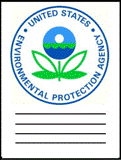United States Environmental Protection Agency

United States Environmental Protection Agency: Publications
Document Type
Article
Date of this Version
2007
Abstract
Contaminant concentrations were determined for media associated with 13 Florida seagrass beds. Concentrations of 10 trace metals were more commonly detected in surface water, sediment and two seagrass species than PAHs, pesticides and PCBs. Concentrations of copper and arsenic in surface water exceeded Florida aquatic life criteria more frequently than other trace elements. Total organic carbon, mercury, chromium, zinc, total chlordane, total PAHs, total PCBs, DDD and DDE were significantly greater in seagrass-rooted sediments than adjacent non-vegetated sediments. Total DDT, DDD, DDE, total chlordane, arsenic, copper and nickel exceeded proposed sediment quality guidelines at six of 13 grass beds. Pesticides, PAHs, and PCBs were below detection in seagrass tissues. Mercury, cadmium, nickel, lead and silver were detected in 50% or more of the tissues for Thalassia testudinum (turtle grass) and Halodule wrightii (shoal grass). Spatial, interspecific and tissue differences were usually an order of magnitude or less.


Comments
Published in Environmental Pollution 146 (2007) 206-218.